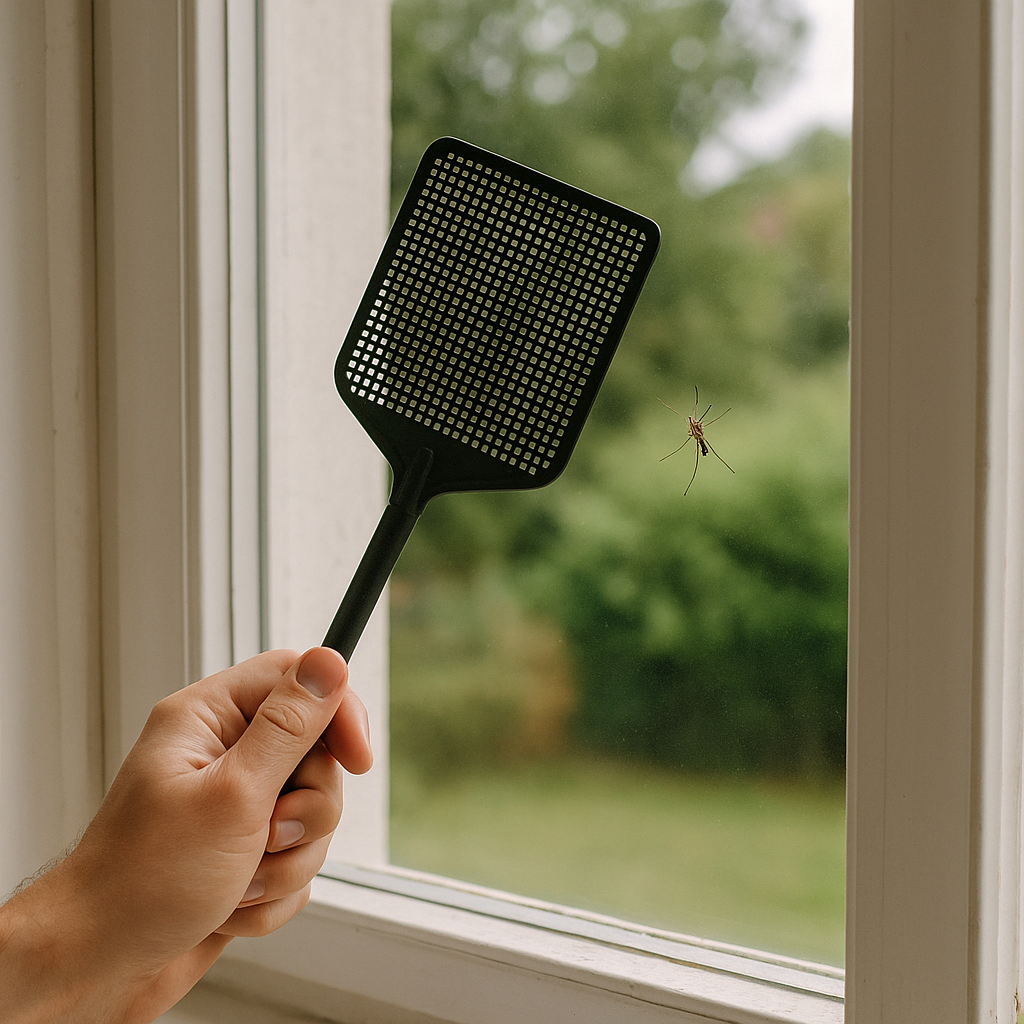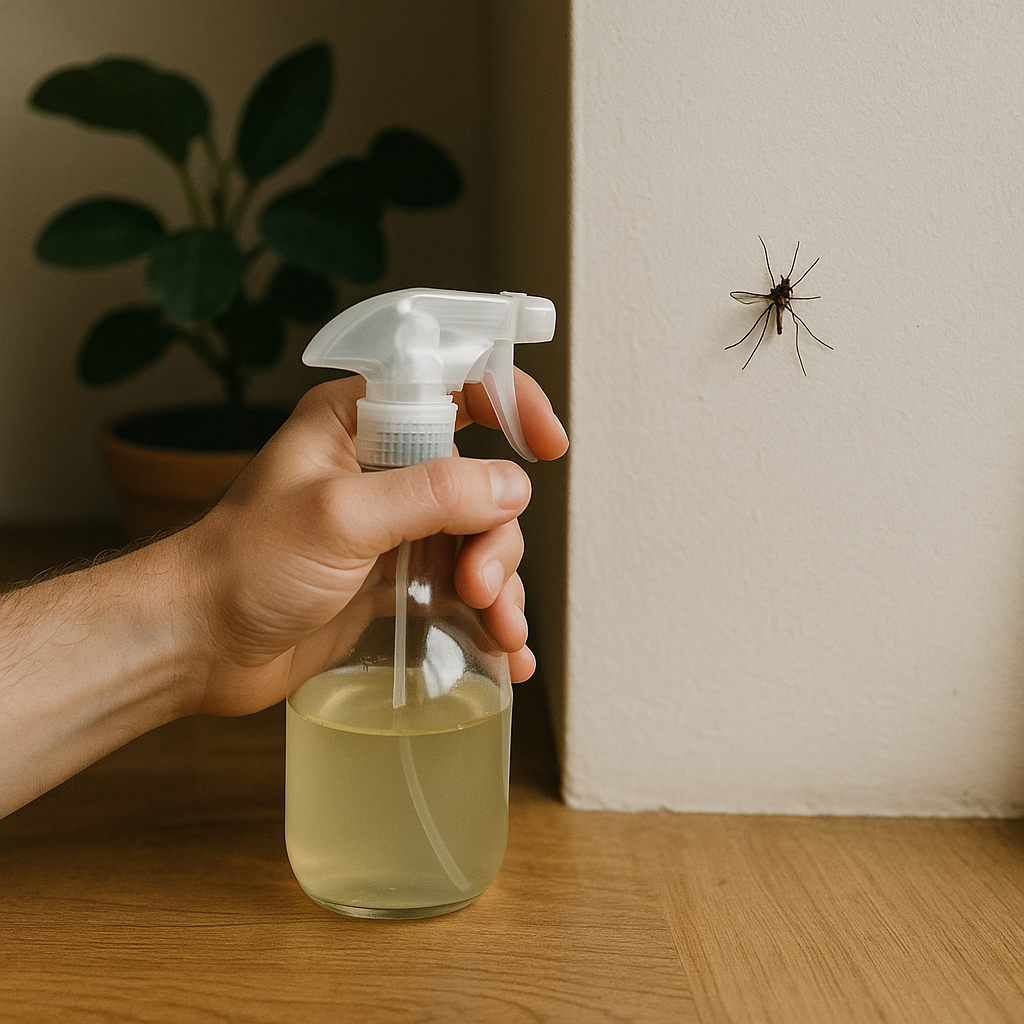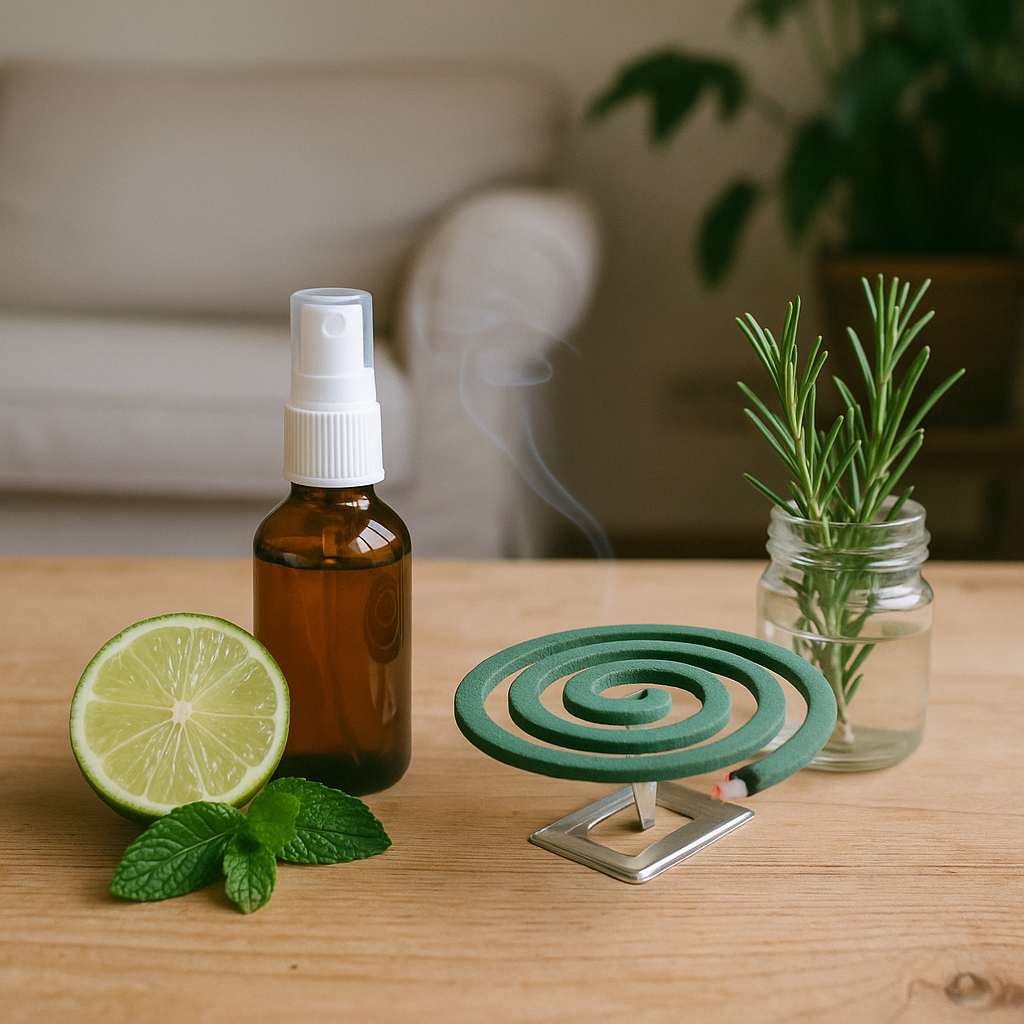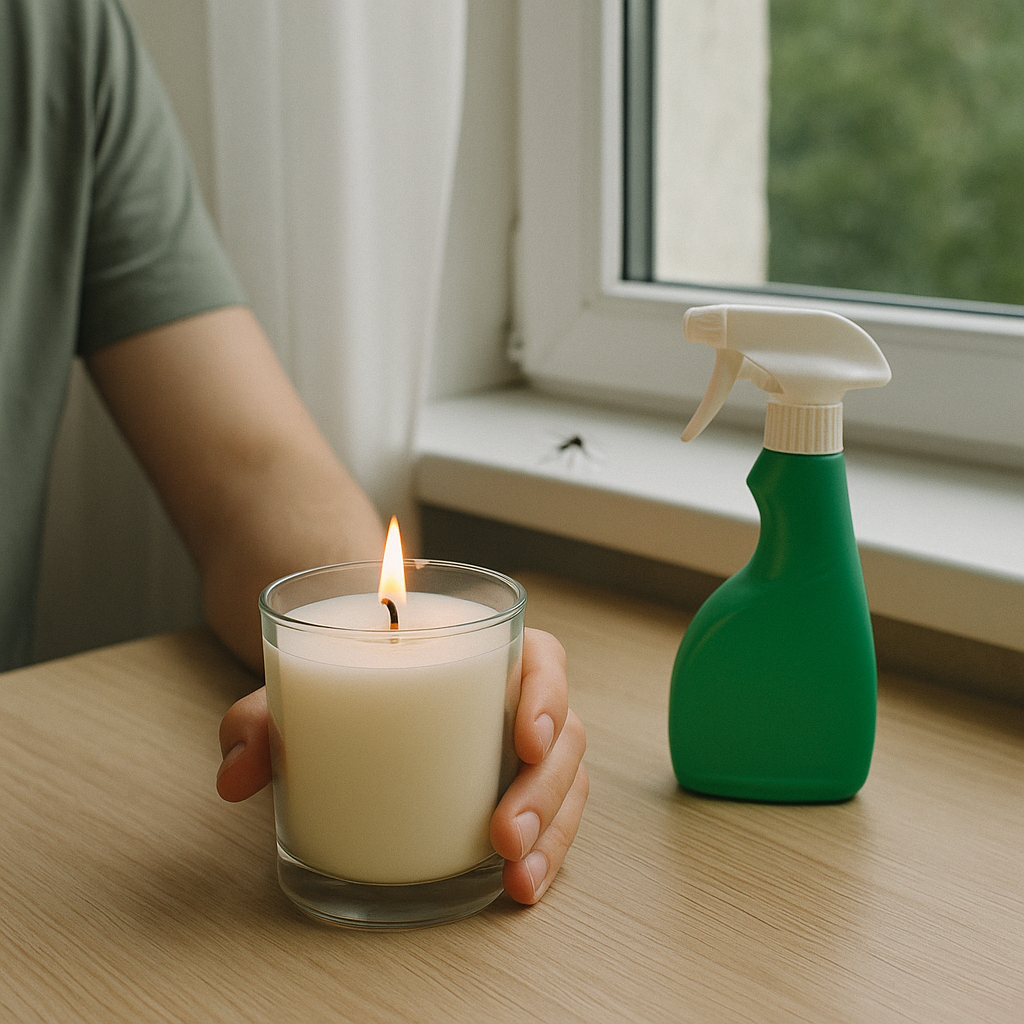How to Make Mosquito Repellent at Home: Natural Ways to Keep Mosquitoes Away

Ever found yourself scratching endlessly at a mosquito bite wondering where that little pest even came from? You're not alone. Figuring out how to make mosquito repellent at home, or just how to get rid of mosquitoes at home altogether, has become an essential task—especially if you live in a warm, humid area where they seem to love crashing your evenings.
But instead of reaching for chemical-laden repellents or those loud electric zappers that smell... weird (let's be honest), there are actually effective and safer alternatives. In this guide, you’ll learn how to repel mosquitoes at home using ingredients you probably already have in your kitchen or garden. Whether you're looking for a natural mosquito repellent for home or wondering how to get rid of mosquitoes at home instantly, we’ve got you covered with science-backed tips, a dash of Ayurvedic wisdom, and DIY recipes that actually work.

How to Get Rid of Mosquitoes at Home: Why It Matters
Health Risks Caused by Mosquitoes Indoors
Sure, one or two bites might just be annoying—but mosquitoes aren’t just irritating. They’re also dangerous. These tiny vampires are known carriers of diseases like dengue, malaria, Zika, chikungunya and more. And the scary part? You don’t even have to step outside to get bitten. One open window or a forgotten water bowl left outside is enough to turn your home into a breeding ground.
It's not just about itching. Mosquitoes can spread illness quickly, especially in areas with poor sanitation or stagnant water nearby. If you're searching for how to kill mosquitoes at home naturally, that’s a smart move for your health and safety.
Ayurvedic View on Preventing Mosquito-Borne Diseases
Ayurveda—India’s ancient system of natural healing—offers some surprisingly effective guidance when it comes to mosquito control. In Ayurveda, balance in the home environment is key to preventing disease. That includes removing sources of dampness, using medicinal herbs like neem and tulsi, and burning certain natural oils like camphor to purify the air.
Ayurvedic remedies aim not only to repel mosquitoes, but to strengthen the body’s own immune defenses, making you less susceptible to bites and infection. So yeah, it's more than just a bug spray—it's a whole vibe.

Don't wait or self medicate. Start chat with Doctor NOW
How to Get Rid of Mosquitoes at Home Instantly and Naturally
Best Practices to Keep Mosquitoes Out of Your House
Before jumping into DIY repellents, start with the basics:
-
Fix screens and seal gaps in doors and windows—mosquitoes can slip through the tiniest cracks.
-
Empty stagnant water from pots, vases, and pet bowls. They only need a few teaspoons to breed.
-
Use fans—mosquitoes aren’t strong flyers.
-
Grow mosquito-repelling plants like basil, citronella, marigold, and lemongrass near windows or entryways.
These steps might seem small, but they make a huge difference in reducing mosquito populations inside your home. And yep, they’re part of the broader plan on how to repel mosquitoes naturally at home.
How to Kill Mosquitoes at Home Naturally and Safely
Now, if you’ve already got a buzzing menace inside your house, here’s how to kill mosquitoes at home naturally:
-
Camphor smoke: Close doors and windows, light a piece of camphor and let it fill the room. Mosquitoes hate it.
-
Garlic spray: Blend garlic with water, strain it, and spray it in corners. Bonus: your house smells... well, interesting.
-
DIY lemon-clove trick: Stick cloves into half a lemon and place it on your nightstand. It's old-school, but strangely effective.
These quick fixes offer more than just relief—they’re instant and safe, no chemicals needed.

How to Make Mosquito Repellent at Home with Natural Ingredients
Getting those mosquitoes out is one thing. But knowing how to make mosquito repellent at home means you're actually prepared before they even strike. Whether you’re sensitive to chemical sprays or just prefer a more natural lifestyle, homemade repellents can be just as effective—plus, they smell a lot better (well, usually).
Let’s break down some simple and safe recipes using everyday items and natural ingredients that mosquitoes seriously can’t stand.
Homemade Mosquito Repellent Using Oils and Herbs
Essential oils are basically liquid gold when it comes to fighting mosquitoes naturally. Many of them contain compounds like citronellal, geraniol, and eugenol, which work wonders in repelling insects.
Here’s an easy DIY repellent spray:
You’ll need:
-
10 drops of citronella oil
-
10 drops of eucalyptus oil
-
5 drops of lavender oil
-
2 tablespoons of witch hazel or vodka (helps it blend)
-
1/2 cup distilled water
-
Spray bottle
Instructions:
Mix everything in the spray bottle, shake well, and spritz it around window frames, bedding, or even lightly on clothes. Reapply every few hours, especially if it’s hot out.
💡Pro tip: Mosquitoes hate the smell of basil and mint too. If you have fresh leaves, crush them up and rub them on your skin (do a small patch test first!).
Now you’ve got a natural mosquito repellent at home that's safe, smells nice, and won’t make you choke on chemical fumes.
How to Make Mosquito Repellent Liquid at Home
You might’ve wondered if it’s possible to recreate those plug-in liquid vaporizers without all the lab-made stuff. It is. In fact, learning how to make mosquito repellent liquid at home gives you control over what you’re breathing in.
Here’s a simple recipe:
Ingredients:
-
1/4 cup neem oil (yes, that bitter one)
-
1/4 cup coconut oil (carrier base)
-
Empty refill bottle from a used vaporizer
-
Small funnel
Method:
-
Mix the neem and coconut oil together.
-
Pour into the old refill bottle using the funnel.
-
Insert the wick and screw it into the machine.
That’s it! Neem is a powerhouse when it comes to repelling mosquitoes. Combined with coconut oil, it’s also gentle on the lungs.
Okay, it smells a bit... earthy, but hey, better than dengue right?
DIY Mosquito Repellent Vaporizer: Ingredients and Steps
If you don’t have a refill bottle, no worries. You can still create a DIY mosquito repellent vaporizer using:
-
A ceramic oil diffuser (or even a small pot and tealight)
-
A mix of essential oils like lemongrass, eucalyptus, and peppermint
-
Water or oil base
Just add water and a few drops of your chosen oils to the diffuser. Light it up and let the gentle steam spread the aroma. The scent creates a barrier that mosquitoes typically won’t dare cross.
⚠️One small thing to remember: Not all essential oils are safe for babies or pets. Always check first.

How to Repel Mosquitoes Naturally at Home with Ayurvedic Tips
Modern science is cool and all, but there’s something timeless about ancient wisdom. Ayurveda, India’s traditional system of medicine, has been fighting mosquitoes since... well, forever. The great part is that these methods are safe, plant-based, and work in harmony with your body and environment.
Let’s explore some lesser-known, yet super effective ways to keep mosquitoes away naturally.
Mosquito Repellent Recipes from Classical Ayurveda
Ayurvedic texts recommend burning dried herbs and oils that cleanse the air and drive out insects—mosquitoes included.
Try this simple combo:
-
Sambrani (resin): Burn it like incense in the evenings.
-
Neem leaves: Dried neem leaves can be burned in a metal dish outdoors.
-
Cow dung cakes + herbs: Yep, this is a thing in rural India, and believe it or not, it works. You mix neem, tulsi, and a bit of turmeric into dried dung, light it, and the smoke chases bugs far away.
Another remedy involves creating a “dhoop” — a herbal fumigant made from guggul, camphor, and ajwain seeds. Light it in the evening and let it slowly burn.
Natural Mosquito Repellent for Home: Effective Remedies
Looking for a quick solution that doesn’t involve fire or complex rituals?
-
Tulsi (holy basil): Just having a tulsi plant in your home reduces mosquito breeding.
-
Lemongrass oil & coconut oil: A 1:1 mix applied on the skin is effective and smells way better than store-bought sprays.
-
Apple cider vinegar: Add a splash to your pet’s water bowl—it makes their scent less appealing to bugs (double check with your vet first).
Remember, the best natural mosquito repellent for home isn’t just one thing—it’s a combination of clean living, good airflow, and the right plants and herbs.
Daily Lifestyle and Environment Adjustments to Reduce Mosquitoes
Let’s get real. You can make all the sprays and candles you want, but if you’re leaving dishes soaking in the sink or letting rain collect in your balcony pots? You're basically throwing a mosquito party.
Here’s what to fix:
-
Keep surroundings dry — empty out anything that collects water.
-
Sleep under a net, especially during monsoon season.
-
Wear light-colored clothing — mosquitoes are drawn to dark clothes.
-
Avoid heavy perfumes or lotions that contain floral or fruity scents.
-
Ventilate rooms — stagnant, warm air is mosquito heaven.
Implementing these habits helps with how to repel mosquitoes naturally at home, and also makes your space cleaner, healthier, and just... nicer.
Conclusion
So, there you have it — everything you need to know about how to make mosquito repellent at home, along with natural, safe, and Ayurvedic strategies for how to get rid of mosquitoes at home once and for all. From essential oil sprays to vaporizer refills, burning herbs to adjusting your habits, you’ve got a full toolkit now.
If there’s one thing to remember, it's this: fighting mosquitoes doesn’t have to mean filling your home with toxins. With a little effort and the right ingredients, you can create a peaceful, bite-free zone right in your own living room.
🧴 Ready to ditch the chemical sprays? Start small—try one homemade remedy today and share your results with friends and fam. You might just be the hero of someone’s summer evening.
FAQs
Q: How to get rid of mosquitoes at home naturally and fast?
A: Use camphor smoke, lemon-clove combos, and essential oil sprays. Also, eliminate standing water and block entry points.
Q: Can I make mosquito repellent liquid at home with essential oils?
A: Yes! Mix neem oil or citronella with coconut oil and use it in a vaporizer refill bottle or diffuser.
Q: Which Ayurvedic herbs repel mosquitoes?
A: Neem, tulsi, lemongrass, camphor, guggul, and ajwain are among the most effective.
Q: Is mosquito repellent safe for babies and kids at home?
A: Most natural repellents are safe, but always avoid strong essential oils on infants. Stick to mild options like diluted lavender and plant-based methods like nets and herbal diffusers.
Got any more questions?
Ask Ayurvedic doctor a question and get a consultation online on the problem of your concern in a free or paid mode.
More than 2,000 experienced doctors work and wait for your questions on our site and help users to solve their health problems every day.

